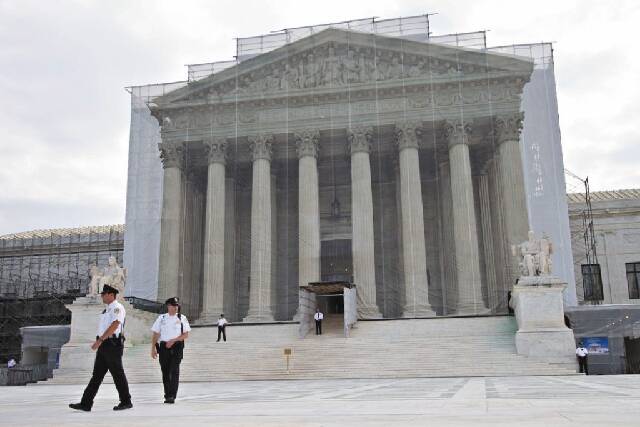The Supreme Court will release decisions in a handful of remaining cases — including the Trump immunity question — today and into early July. In the meantime, the justices have struck a blow for freedom in recent weeks by reinvigorating important provisions in the Bill of Rights.
On Thursday, the high court reined in the ubiquitous administrative state by putting new life into the Seventh Amendment’s right to a jury trial. In April, it struck a blow for the Fifth Amendment by holding that municipal “impact” fees can run afoul of property rights.
The former case involved the practice of regulatory agencies avoiding federal court by using in-house “tribunals.” A hedge fund operator challenged the practice after the SEC hit him with nearly $1 million in fines upon finding he had misled investors. An SEC administrative judge heard the case.
The hedge fund owner later challenged his conviction, arguing that he had a right to plead his case before a jury. The 5th U.S. Circuit Court of Appeals ruled in his favor, holding that the SEC was essentially serving as judge, jury and executioner, violating both the defendant’s right to a jury trial and the separation of powers doctrine.
A majority of Supreme Court justices agreed. A defendant facing a fraud suit has “the right to be tried by a jury of his peers before a neutral adjudicator,” Chief Justice John Roberts wrote in the 6-3 decision. “Rather than recognize that right, the dissent would permit Congress to concentrate the roles of prosecutor, judge and jury in the hands of the executive branch.”
Progressives fret that the ruling will make it more difficult for alphabet regulatory agencies to operate. Good. The Constitution wasn’t written to make life easier for the state. Quite the contrary. It’s up to the courts, not anonymous bureaucrats toiling for executive branch agencies, to make legal determinations.
In the property rights case, the justices ruled in favor of a California retiree who sued his local government after officials imposed a $23,000 traffic impact fee in return for issuing him permits to build a home on his own land. The defendant argued that the government hadn’t shown a nexus between the amount of the fee and the traffic his new home would generate.
Local officials argued that their arbitrary decision didn’t amount to a taking because it was a legislative rather than a bureaucratic decision. The justices weren’t buying.
“The Constitution’s text does not limit the Takings Clause to a particular branch of government,” Justice Amy Coney Barrett wrote in a unanimous opinion. “There is no basis for affording property rights less protection in the hands of legislators than administrators. The Takings Clause applies equally to both.”
Both decisions reflect the majority elevating the Constitution above the comfort of the bureaucracy. Americans are freer for it.

